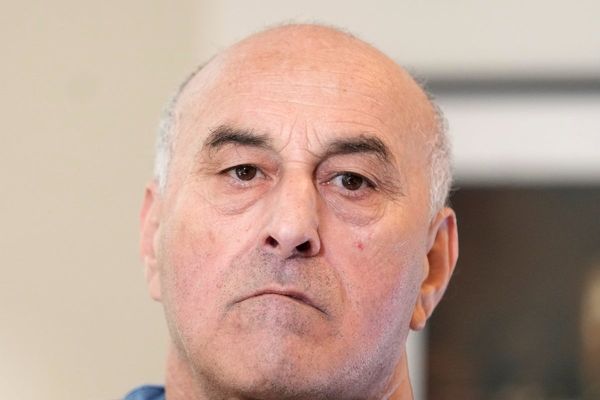
The UN has weighed in on France’s debate about secularism and women’s clothing, saying women should not be forced to abide by dress codes, after the French government said athletes representing France would be barred from wearing headscarves during the 2024 Olympic Games in Paris.
“No one should impose on a woman what she needs to wear, or not wear,” Marta Hurtado, a spokesperson for the UN’s human rights office, said on Tuesday after she was asked whether the ban met the UN’s criteria on human rights.
Her remarks came after France’s minister for sport, Amélie Oudéa-Castéra, highlighted the government’s commitment to secularism and its opposition to the display of religious symbols during sporting events.
“What does that mean? That means the prohibition of any type of proselytising and the absolute neutrality of the public service,” Oudéa-Castéra told the broadcaster France 3 on Sunday. “Which means that the representatives of our delegations, in our French teams, will not wear the headscarf.”
The ministry said on Tuesday that Oudéa-Castéra’s remarks were in line with French law and the “public service mission” expected of French athletes, meaning they must remain neutral and not express religious opinions or convictions.
“As such, they may not wear a headscarf (or any other accessory or garment expressing their religious affiliation) when representing France in a national or international sporting competition,” it said in a statement.
The rules for other athletes would be set by each international federation, under the supervision of the International Olympic Committee, it added.
On Tuesday Hurtado pointed to France’s obligation, as a signatory to the international convention eliminating discrimination against women, to “take all the appropriate measures to modify any social or cultural patterns which are based on the idea of inferiority or superiority of either sexes”.
“Having said that, the discriminatory practices against a group can have a harmful consequence,” Hurtado told reporters.
She also pointed to international standards on human rights to argue that restrictions on the expression of religion or beliefs were “only acceptable under really specific circumstances that address legitimate concerns for public safety, public order or public health” and that these restrictions must be enacted in a “proportionate fashion”.
France’s long-simmering debate over secularism and women’s clothing has long spilled over into sport.
In June the country’s top administrative court upheld a ban that barred female footballers from wearing headscarves while playing. The court found the ban to be “appropriate and proportionate” and said sporting federations had the right to impose neutrality requirements on their players in order to “guarantee the smooth running of matches and prevent clashes or confrontations”.
The ban had been challenged by a group of headscarf-wearing players, calling themselves “Les Hijabeuses”, who argued it was out of step with Fifa’s 2014 decision to lift its years-long ban. Their efforts were disparaged by the country’s hardline interior minister, Gérald Darmanin, who accused them of hoping to give the republic a “battering”, adding: “When you play football, you don’t need to know the religion of the person in front of you.”
Since then the French government has intensified its efforts to enforce secularism by cracking down on what it sees as religious clothing. Last month it announced it would ban the abaya, a long, flowing dress worn by some Muslim women, in state schools, leading to dozens of girls being sent home from school.
While the government defended its decision, saying it was in line with a 2004 law, critics accused it of tacking to the right in an effort to compete with its far-right rivals.
Clémentine Autain, an MP for the radical left party La France Insoumise, described the ban as “characteristic of an obsessional rejection of Muslims” while Jean-Luc Mélenchon, the leader of La France Insoumise, accused the government of launching an “absurd form of war on religion”.
The country’s strict commitment to secularism has often put it at odds with the UN human rights committee.
In 2018 a committee made up of 18 experts from around the world said the country had violated the rights of two women after it fined them for wearing the niqab. In two landmark rulings it said the state had failed to back its claim that the niqab presents a threat to public security. Instead, it said the country’s ban on face coverings could end up marginalising women by confining them to their homes and impeding their access to public services.
Last year France was again rebuked by the human rights committee, which found it had discriminated against a Muslim woman by barring her from attending vocational training in a public school while wearing her headscarf.
The decision to deny the woman access to the training constituted a “gender and religious-based act of discrimination”, the committee said.







